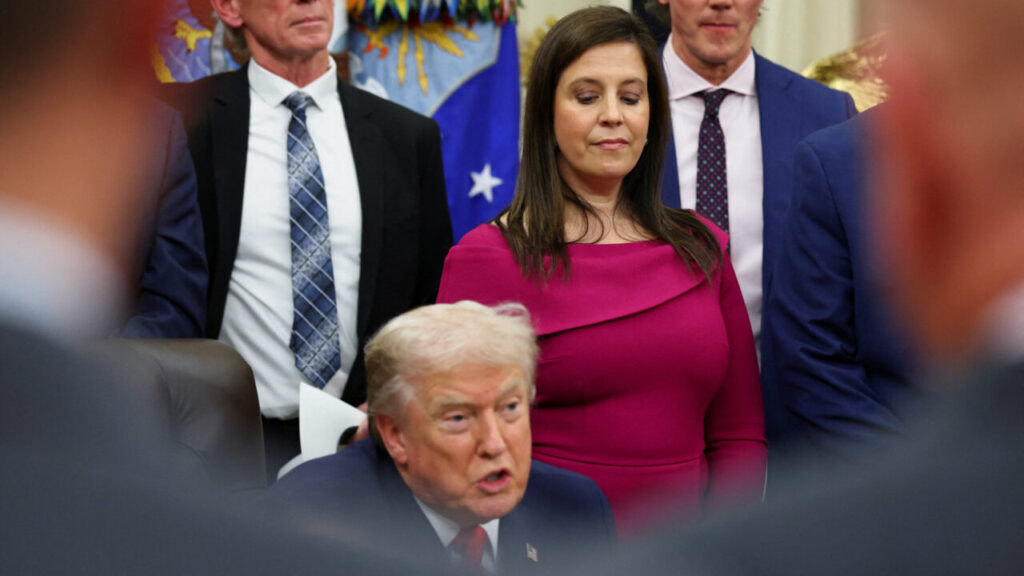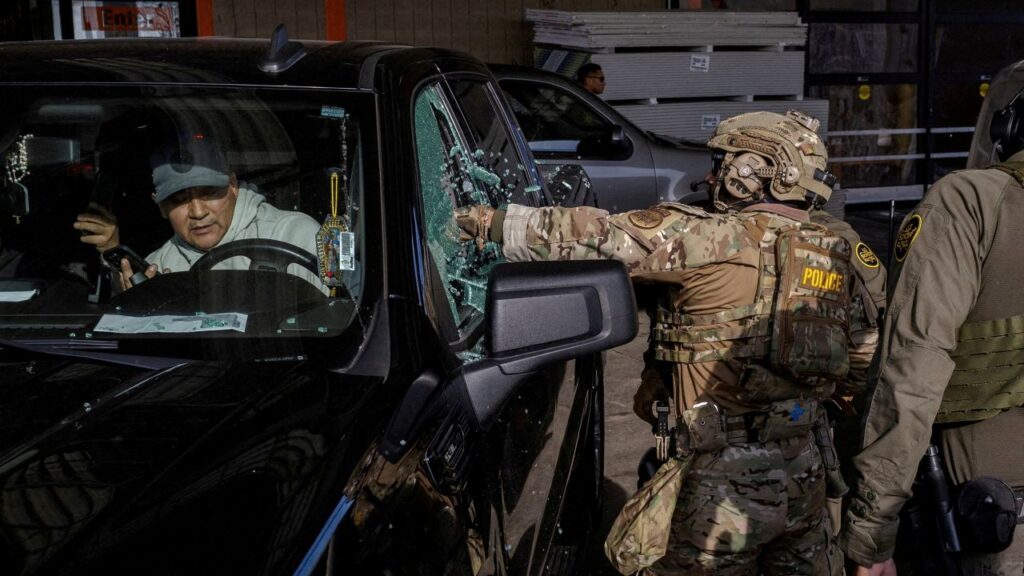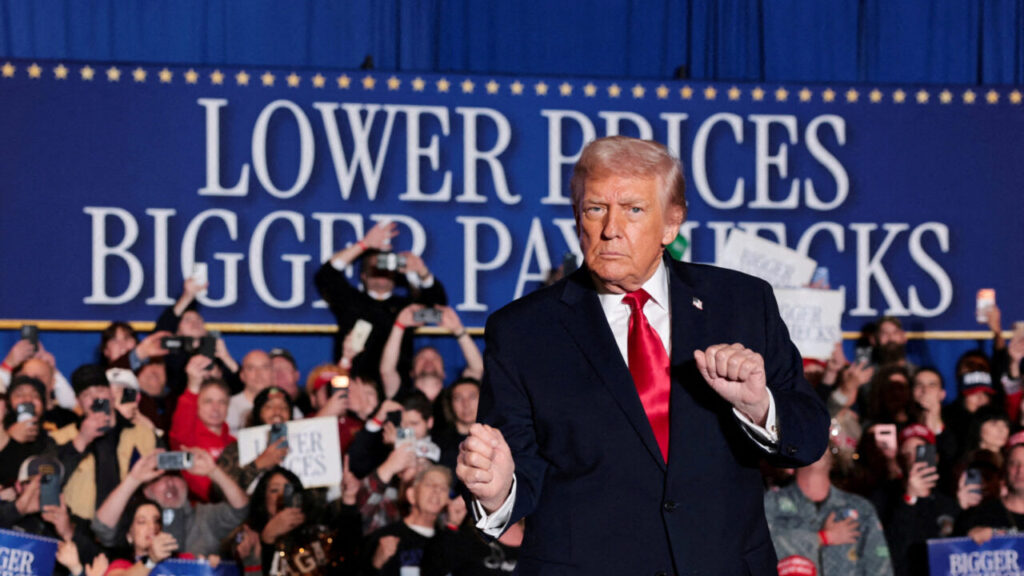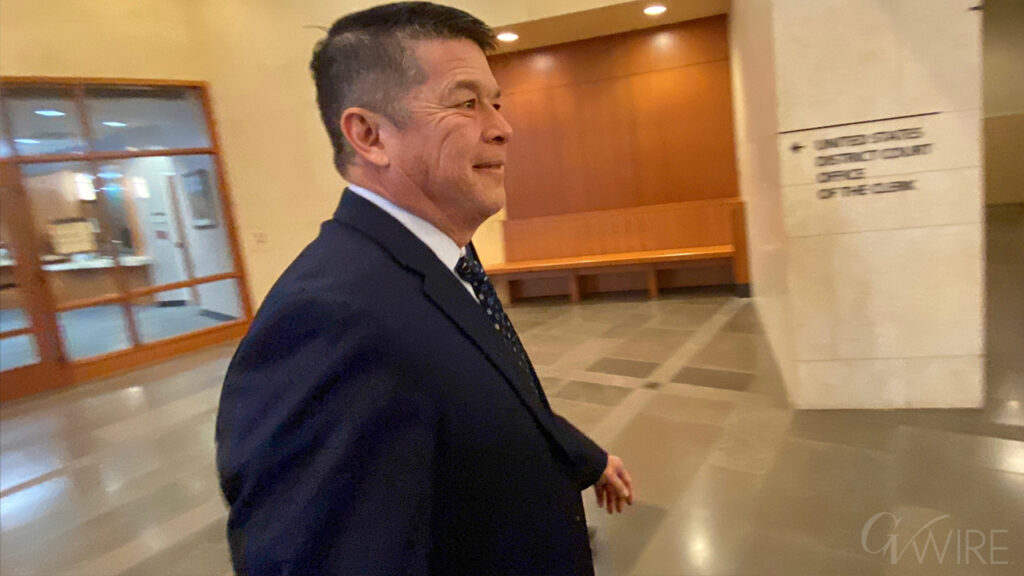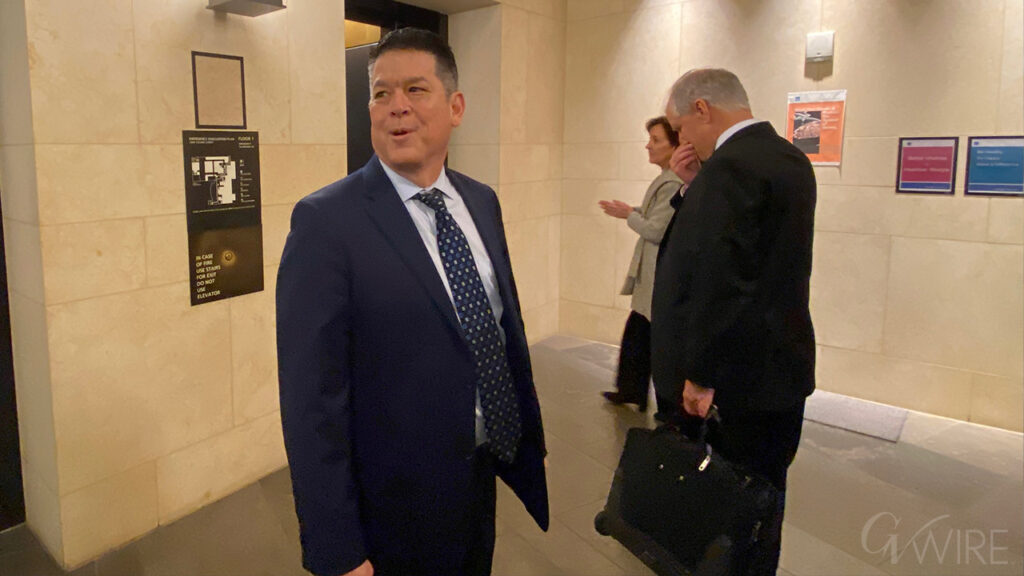Sen. Ted Cruz (R-Texas) speaks during the Senate Judiciary hearing “Unfit to Serve: How the Biden Cover-Up Endangered America and Undermined the Constitution” in the Dirksen Senate Office Building in Washington, June 18, 2025. Toward the end of his term as president, Biden reduced the sentences of nearly 4,000 federal convicts and pre-emptively pardoned dozens of politically prominent people he saw as potential targets of vindictive criminal investigations by his successor. (Eric Lee/The New York Times)

- Biden defends clemency decisions, says he authorized all actions as Republicans probe his mental fitness and autopen use in final weeks.
- GOP investigations target Biden's pardons, alleging staff misused autopen amid concerns over his cognition and preemptive pardons for political allies.
- Emails show Biden directed clemency decisions orally; aides documented meetings before using autopen, fueling legal scrutiny under Trump administration.
Share
|
Getting your Trinity Audio player ready...
|
WASHINGTON — Former President Joe Biden is escalating his battle against Republican claims that he might not have been in control of high-profile clemency decisions issued under his name at the end of his term and, more generally, that his cognitive state impaired his functioning in office.
In an interview with The New York Times, Biden said he had orally granted all the pardons and commutations issued at the end of his term, calling President Donald Trump and other Republicans “liars” for claiming his aides had used an autopen to do so without his authorization.
“I made every decision,” Biden said in a phone interview Thursday, asserting that he had his staff use an autopen replicating his signature on the clemency warrants because “we’re talking about a whole lot of people.”
The interview was Biden’s first about the parallel investigations begun by the Trump White House, the Justice Department and Congress into a series of clemency decisions made by Biden in his final weeks in office and his mental acuity during his term.
Republicans in Congress have demanded sworn interviews with former Biden aides, prompting them to hire their own lawyers. Some lawyers are said to have warned their clients not to talk publicly and about the dangers of testifying because the Justice Department under Trump might be eager to bring perjury charges over any inconsistency, no matter how minor.
Biden’s former White House doctor, who has said his medical evaluations showed he was fit to serve, invoked the Fifth Amendment to avoid answering questions from lawmakers last week. His lawyers cited the pending Justice Department inquiry and the risk of being ensnared in ambiguous circumstances. But Biden, as a former president, has greater constitutional defenses against being subpoenaed by Congress.
The full picture of what Biden did on pardon and clemency decisions, and how much he directed those decisions and the actions of his staff, including the use of the autopen, may come down to tens of thousands of Biden White House emails that the National Archives has turned over as part of the investigation by the Trump White House and the Justice Department. Those emails contain keywords like “clemency,” “pardon” and “commutation” from November 2024 through Jan. 20, 2025, according to people familiar with the matter, speaking on the condition of anonymity to discuss a sensitive issue.
The Times has reviewed several dozen of those emails, which discussed each of the major grants of clemency that were recorded by an autopen near the end of Biden’s term. But the Times has not seen the full extent of the emails, so it is impossible to capture the totality of information they contain or what else they might show about Biden’s involvement in the pardon and clemency decisions.
But those that were reviewed by the Times show that the Biden White House had a process to establish that Biden had orally made decisions in meetings before the staff secretary, Stefanie Feldman, who managed use of the autopen, would have clemency records put through the signing device.
Asked what evidence the Trump White House has that Biden did not authorize the clemency actions, a spokesperson, Harrison Fields, said Sunday that Biden “should not be trusted,” adding, “The truth will come out about who was, in fact, running the country.”
While Biden had previously criticized the GOP claims that he did not make the clemency decisions as “ridiculous and false” in a written statement, he spoke to the Times as he and his team are stepping up efforts to counter the attack by Trump and his congressional allies.
Trump, asked by a reporter last month whether he had uncovered evidence that anything had been illegally signed without Biden’s knowledge, said no. But he cited his rival’s debate performance in June 2024, when Biden, 81 at the time, delivered halting and meandering answers. Biden withdrew soon after from his reelection bid.
“I’ve uncovered, you know, the human mind,” Trump said. “I was in a debate with the human mind, and I didn’t think he knew what the hell he was doing.”
Age-related cognitive decline is a spectrum. At one end, many older people become more prone to blanking on names or losing their train of thought when speaking at length, but remain able to process information and make reasoned decisions. At the other, some develop profound dementia.
Republicans are positing an extreme version, claiming that Biden was incapacitated. They are speculating that his staff conspired to use the autopen to make presidential decisions in his name.
At the end of his term, Biden reduced the sentences of nearly 4,000 federal convicts and preemptively pardoned politically prominent people he considered potential targets of Trump for criminal investigations.
Biden said in Thursday’s interview that he had his staff use an autopen for the warrants because he had granted clemency to so many people; the autopen was used, in all, on 25 pardon and commutation warrants from last December to January. Some of the individual warrants included large batches of names because they all fell into the same broad policy category, such as reducing the sentences of nonviolent drug offenders who met standards Biden established.
Trump and his congressional allies are focused in particular on trying to delegitimize Biden’s final batch of clemency actions.
That set extended preemptive pardons to many people Trump perceives as enemies, including Gen. Mark A. Milley, Dr. Anthony Fauci and members and staff of the House committee that investigated the Capitol riot. Trump has claimed on social media that the Jan. 6 committee pardons are invalid, asserting, without offering evidence, that Biden “did not know anything about them!”
In the 10-minute interview, which the Times requested as part of its reporting on the investigations, Biden said he shielded those people, along with members of his family, so they would not have to run up large legal bills from politically motivated investigations by the Trump Justice Department.
“Everybody knows how vindictive he is, so we knew that they’d do what they’re doing now,” Biden said, adding, “I consciously made all those decisions.”
‘The President Makes the Final Decision’
On Oct. 30, 2024, the emails reviewed by the Times show, Biden’s White House counsel, Ed Siskel, notified senior staff to expect a flood of lobbying for clemency grants at the administration’s end and laid out a process for an orderly review.
The final step, he wrote: “The president makes the final decision on the final pardon and/or commutation slate.”
Over the next three months, Biden made four major sets of clemency actions that were recorded with an autopen. The emails reviewed by the Times included discussions about all four batches.
Three applied to broad categories of people. He reduced the sentences of inmates sent to home confinement during the pandemic and certain nonviolent drug offenders.
And he turned the death sentences of 37 of the 40 federal inmates on death row to life without parole. That echoed the criteria he had used in 2021 when he imposed a moratorium on carrying out federal executions but excluded death row inmates convicted of terrorism or mass-murder hate crimes.
In the interview, Biden explained that he decided against commuting the sentences of three death-row inmates convicted of such crimes to life sentences, too, even though “some thought I should have.” Their offenses affected American society as a whole, Biden said, so commuting their sentences would have been “a bridge too far.”
The fourth set was announced on Biden’s last day. They included preemptive pardons for members of his own family and various people who have drawn Trump’s ire.
The emails reflect White House activity surrounding each of those tranches, including the dates of the meetings at which White House officials indicate Biden made decisions and the names of the senior aides in attendance.
They also show that use of the autopen was managed by Biden’s White House staff secretary, Feldman. She wanted to receive written accounts confirming Biden’s oral instructions in the meetings before having it used to produce the warrants recording the clemency actions, the emails show.
The aides referred to those written accounts of meetings at which Biden delivered oral decisions as “blurbs.” The accounts were drafted by aides to the senior advisers who had participated in the key meetings — including Biden’s chief of staff, Jeffrey D. Zients, and Siskel.
The assistants who drafted the blurbs were not themselves in the room with Biden, according to the lists of meeting participants. The emails imply that Siskel and Zients relayed what Biden had said to the assistants, who then documented it.
The assistants circulated the drafts to Siskel, Zients and other meeting participants before sending the final versions to Feldman, again copying the meeting participants.
For the earlier sets of large-scale clemency actions, the process sometimes took place several days after the meeting with Biden. For two crucial meetings at the end of his term, it took place on the same days.
The emails also show that when the White House was preparing to announce clemency grants, communications staff drafted statements explaining the decisions. Biden had to be shown the drafts, and they could not be released until an aide said he had approved them. On at least one occasion, wording was tweaked because of what an email said was feedback from Biden.
Biden did not individually approve each name for the categorical pardons that applied to large numbers of people, he and aides confirmed. Rather, after extensive discussion of different possible criteria, he signed off on the standards he wanted to be used to determine which convicts would qualify for a reduction in sentence.
Even after Biden made that decision, one former aide said, the Bureau of Prisons kept providing additional information about specific inmates, resulting in small changes to the list. Rather than ask Biden to keep signing revised versions, his staff waited and then ran the final version through the autopen, which they saw as a routine procedure, the aide said.
By contrast, Biden said in the interview, he discussed each of the high-profile individuals with aides. He used Milley as an example.
“We know how vindictive Trump is and I’ve no doubt they would have gone after Mark for no good reason,” Biden said. “The general, you know. So they may read off his name — what’d I want? I told them I wanted to make sure he had a pardon because I knew exactly what Trump would do — without any merit, I might add.”
Biden completed the list of high-profile clemency decisions over two meetings, the emails show. One, on Jan. 18, included Zients, Siskel and another aide, Bruce Reed. Another, on the evening of Jan. 19, his final night as president, was with Siskel, Reed and three other top aides, Anthony Bernal, Steve Ricchetti and Annie Tomasini.
The emails show that Biden added the preemptive pardons for his family at the Jan. 19 meeting. They also suggest that he changed some of his thinking.
The summary of the first meeting said Biden had decided to grant a pardon to Don Siegelman, a former Democratic governor of Alabama who was convicted in 2006 of federal corruption charges. The summary of the second said the president had decided to rescind his approval of a pardon for Siegelman.
Notably, President Barack Obama was heavily lobbied to pardon Siegelman and never did. In the interview, Biden said he changed his mind after reflecting “on it a bit more,” noting that many people apply for pardons and that Siegelman was out of prison and not in any jeopardy.
The Jan. 19 summary also showed that Biden made a late decision to pardon Ernest W. Cromartie II, a former city councilman in Columbia, South Carolina. In 2010, he had pleaded guilty to a tax evasion charge and later served a year in prison.
Biden started that day in South Carolina, attending a church service with a close political ally, Rep. Jim Clyburn, who former aides say lobbied him afterward to help Cromartie. In the interview, Biden acknowledged that was what had happened.
“I agreed with Jim and I pardoned him,” he said.
At the Jan. 19 meeting, which took place in the Yellow Oval Room of the White House residence, Biden kept his aides until nearly 10 p.m. to talk through such decisions, according to people familiar with the matter.
The emails show that an aide to Siskel sent a draft summary of Biden’s decisions at that meeting to an assistant to Zients, copying Siskel, at 10:03 p.m. The assistant forwarded it to Reed and Zients, asking for their approval, and then sent a final version to Feldman — copying many meeting participants and aides — at 10:28 p.m.
Three minutes later, Zients hit “reply all” and wrote, “I approve the use of the autopen for the execution of all of the following pardons.”
Expanding Investigations
This spring, Ed Martin, a Trump loyalist who was then the interim U.S. attorney for the District of Columbia, sent letters to Biden’s former aides asking for more information about Biden’s role in the pardon decisions. Martin’s nomination for that role later collapsed in the Senate, and he has since become the Justice Department’s pardon attorney.
The Trump administration’s scrutiny of the use of the autopen intensified last month, when Trump signed an order June 4 directing his White House counsel and attorney general to investigate Biden’s mental acuity and whether Biden’s aides had illegally used the device.
Two days earlier, Reuters reported, Martin told his staff that he had been directed to run such an investigation and wrote in an email that he was focused on Biden’s preemptive pardons to his family members and his reduction of the death sentences to life without parole. That scrutiny, he wrote, included whether Biden “was competent and whether others were taking advantage of him through use of autopen or other means.”
The executive branch investigation led to the Trump administration request for all emails about clemency issues from the Biden White House near the end of Biden’s term. Under National Archives procedures, Biden could have raised objections but did not, according to the people familiar with the matter.
At the same time, Rep. James Comer, R-Ky., chair of the House Oversight committee, and Sen. Ron Johnson, R-Wis., have begun their own investigations into whether Biden and his aides concealed mental deficiencies that made him unable to perform presidential duties.
To assist with those inquiries, the Trump White House preemptively issued a waiver saying that Biden could not invoke executive privilege to shield his White House’s internal information from Congress.
Many of Biden’s aides and allies dismiss the investigations as baseless, and they see them as part of Trump’s wide-ranging retribution campaign against people and institutions he does not like. But the investigations have entangled a broad group of former Biden administration officials, and they have enlisted a flight of white-shoe lawyers from around Washington.
The firms, some of which are performing the work at no cost, include Latham & Watkins, Covington & Burling, Cooley and Steptoe, according to people familiar with the matter.
Latham & Watkins is among the law firms that cut a deal with Trump to avoid being targeted by his executive orders.
Michael Bromwich, a senior counsel at Steptoe, criticized the inquiry. “The fact that this Biden ‘investigation’ is the obsessive focus of the House Oversight Committee simply highlights the decline and fall of the congressional oversight function,” he wrote in an email.
Latham & Watkins and Cooley declined to comment. A spokesperson for Covington & Burling did not respond to a request for comment.
Most former Biden officials have selected their own lawyers at different firms, and although there has been some communication among them, there is no unified legal strategy — and so the former aides have, at times, charted different paths in responding to the requests from Capitol Hill, according to the people familiar with the matter.
Comer’s committee has requested interviews with more than a dozen of Biden’s former aides, including Ron Klain, Mike Donilon, Anita Dunn, Reed, Ricchetti, Zients and Tomasini.
Comer has so far subpoenaed two of the aides: Dr. Kevin O’Connor, the president’s White House physician, and Bernal, the top aide to Jill Biden, the former first lady. O’Connor refused to answer questions Wednesday, citing both physician-patient privilege and his Fifth Amendment right against self-incrimination. Bernal did not appear for his interview that had been scheduled for last month, but he is now subpoenaed to appear Wednesday.
The first to testify was Neera Tanden, who served as staff secretary for part of Biden’s presidency and as domestic policy adviser at the end of his administration; she sat for an interview last month. Ashley Williams, an aide to the president, participated in an interview Friday, and the interviews are scheduled to continue into September. In the Senate, Johnson’s committee has requested interviews with the Cabinet officials, and Tom Vilsack, the former agriculture secretary, has already appeared for an interview.
Biden himself has hired a new personal lawyer, Amy Jeffress of Hecker Fink. He had been without one since he and his former personal lawyer, Bob Bauer, quietly parted ways months earlier, according to people familiar with the matter. Jeffress and Bauer declined to comment.
Bauer’s relationship with Biden significantly cooled over the last year of his presidency, in part because of an extended clash with Biden’s son Hunter and his defense team over the political risks to the president created by aggressive public relations tactics they used in defending against congressional inquiries.
Biden granted Hunter Biden a full pardon in December 2024. It was the only clemency warrant in that period that Biden signed with his own hand.
—
This article originally appeared in The New York Times.
By Charlie Savage and Tyler Pager/Eric Lee
c. 2025 The New York Times Company





